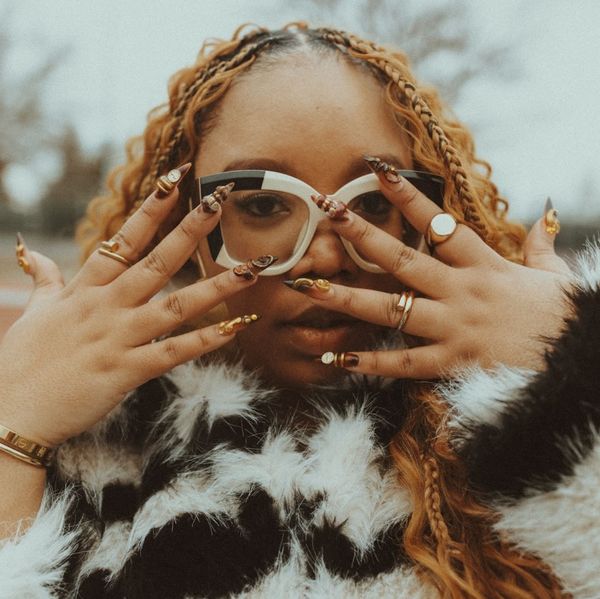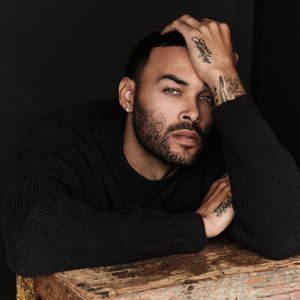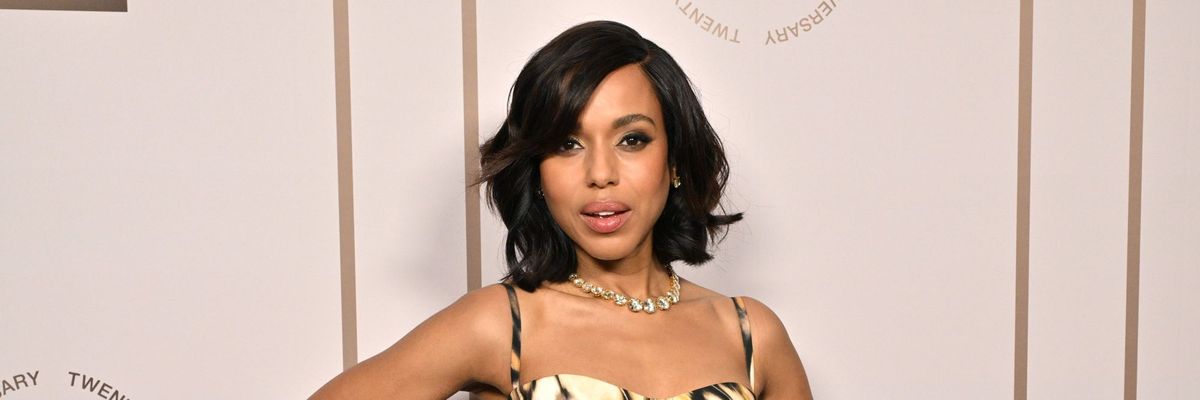Why I’m No Longer Feeling Guilty About Moving Home To Be A Stay-At-Home Daughter

What is a dream deferred in 2025 with the rising cost of living, a trash job market, and an administration that is determined to make my life a living hell? Chile, let’s get into it.
For as long as I can remember, I have had dreams of being the Black Carrie Bradshaw, prancing around New York City as a fashion writer. The stylish apartment, the popping dating life, the impeccable wardrobe — that was all I wanted. (Lucky for me, the impeccable wardrobe has always been a constant.)
Bishop Carrie once said, “In New York, they say you’re always looking for a job, a boyfriend, or an apartment. So, let’s say you have two out of three, and they’re fabulous. Why do we let the one thing we don’t have affect how we feel about all the things we do have?”
What a powerful question.
Concrete Jungle Where Dreams Are Made Of
In 2022, I made the exciting move to New York City. Everything seemed to fall into place effortlessly: I secured a comfortable apartment and found myself immersed in a thriving freelance market. I even embarked on a new romantic relationship, a first for me. However, the tide began to turn by mid-2023. The once-abundant freelance opportunities dwindled as various platforms faced funding cuts and the media industry experienced a downturn.
Fast forward to 2024, and my mom, the woman who gave everything to raise me, is experiencing some health challenges. It felt as though the universe was pushing me towards a change. Around the same time, I began to question my career path as a fashion writer. The continual need to be "on" and present everywhere was exhausting, and the ups and downs of the job application process, including interviews and rejections, took a significant toll on my mental health.
The allure of New York City, with its bustling streets, towering skyscrapers, and the promise of endless possibilities, was beginning to fade.
The vibrant and exciting metropolis of the past now felt overwhelming and chaotic. The constant noise, the crowds, the fast-paced lifestyle – it all started to feel like a suffocating burden. The city that never sleeps had become a source of anxiety and restlessness, and the charm of the New York state of mind was slowly giving way to a sense of disarray and unease. There was always this sense of living in a dream coupled with overstimulation.
Given the current state of the world—rising costs of living, shifting career landscapes, and the emotional weight of supporting aging parents—it was time for me to be so real with myself. Did I really need to be in New York to be a fashion writer? Because opportunities have been presenting themselves that aren’t tied to location or a timeline.
The answer became so clear to me — it was time to go home.
Shifting the Narrative: Embracing the Return Home as an Empowered Woman
For generations, the concept of moving back home has been shrouded in negativity, often perceived as a regression, particularly for women who have strived for and achieved independence.
I want to challenge this outdated narrative and reframe the return home as a conscious, empowered choice. This exploration delves into the multifaceted emotions associated with moving back home, dismantling the guilt that often accompanies this decision, and embracing the evolving role of a daughter as a source of strength and support for my family.
From a cultural standpoint, returning home is also a radical act of preservation.
In a society that often devalues Black familial bonds and misrepresents our communities, choosing to be close to kin is an assertion of our values. It’s about honoring the aunties who raised us, the cousins who feel more like siblings, and the grandparents who built legacies from scratch. Our family structures are ever-evolving, stretching to support and uplift in ways traditional Western models don’t always understand.
When we come home, we’re not just coming back to a place—we’re coming back to a lineage of resilience and love.
In This Economy…
The economic realities of today make this decision even more practical. Skyrocketing rent, stagnant wages, and inflation have forced many of us to reconsider what independence really means. Living at home, or closer to home, can offer the breathing room to save, strategize, and build with intention. But beyond the numbers, there’s an emotional currency we gain too.
Home can be a sanctuary—a space where we don’t have to code-switch, perform, or constantly explain ourselves.
In a world that often demands our labor but rarely affirms our humanity, returning home can be the most freeing, grounded choice of all. And in full transparency, there’s a part of me that felt shame about going back home to Memphis out of concern for how others would see it. Memphis isn’t as bright and shiny as Denver and New York, these big cities where I had created a life and made a name for myself.
But why should I care? No one is paying these bills and dealing with the ups and downs of working in fashion with me. It’s just me. I’ve finally come to a point where I realize that I can no longer live for the cheers because if I do, I will die by the boos.
I am most concerned with the way my life feels instead of how it looks.
I Thought I Was Failing — But I Was Finally Healing
With that said, I am now rebranding myself as a "stay-at-home daughter."
More than ever, I want to highlight the ways in which women can contribute to their families while also pursuing personal growth and fulfillment. This exploration feels like a way to inspire and empower women to embrace their decision to return home, shedding societal expectations and redefining what it means to be a modern daughter.
I have the deepest feeling that this chapter is going to be healing for me and my mother, and we deserve.
Let’s make things inbox official! Sign up for the xoNecole newsletter for love, wellness, career, and exclusive content delivered straight to your inbox.
Featured image courtesy of Joce Blake
This Is How To Keep 'Holiday Season Stress' From Infecting Your Relationship
Hmph. Maybe it’s just me, but it seems like there is something really weird happening in the fall season air (because winter doesn’t officially begin until December 21) that cuddle season is in full swing while break-up season is as well. In fact, did you know that break-ups are so popular during the holiday season that December 11 is deemed Break-Up Day?
The reasons why relationships shift around this time vary; however, I did both roll my eyes and chuckle when I read that a very popular one is because it’s an easy way to get out of getting one’s significant other a Christmas present. SMDH.
Anyway, I personally think that the less shallow folks out here may contemplate calling things “quits” or they at least distance themselves a bit from their partner (and what I’m referring to is serious relationships) due to all of the stress and strain that oftentimes comes with the holidays whether it be financial, familial, due to their tight schedules or something else.
Listen, I would hate for you and your man to miss the fun and happiness of experiencing this time of year, all because you are so overwhelmed or irritated that you can’t really enjoy it. That’s why I have a few practical tips for how to avoid allowing the typical holiday season stress from INFECTING your relationship.
Manage Your Expectations
 Giphy
GiphyUnmanaged expectations. If there is a main reason why the holiday season tends to be so stress-filled for so many people, I’d bet good money that this is the cause. And when you’re in a long-term relationship, expectations can manifest themselves in all sorts of cryptic and/or unexpected ways. You might have relatives who assume that you are going to be with them for Thanksgiving or Christmas when you have other plans in mind. You might be thinking that you are going to spend one amount for presents while your man is thinking something totally different. When it comes to scheduling, your signals may be crossed.
And you know what? To all of these scenarios, this is where clear and consistent communication come in. Don’t assume anything. Don’t dictate anything either. From now until New Year’s, mutually decide to check in once a week, just to make sure that you are both on the same page as it relates to the holidays and what you both are thinking will come along with it. The less blindsided you both feel, the less stressed out you will be. Trust me on this.
Set (and Keep) a Budget
 Giphy
GiphyOkay, so I read that last year, 36 percent of Americans incurred some type of holiday-related debt. Hmph. Last year, there was still some sense of normalcy in this country, chile, so I can only imagine what finances are gonna look like over the next several weeks. That said, since I don’t know a lot of people who don’t find being broke stressful, make sure that you and your bae set a budget and then stick to it this year — no ifs, ands or buts.
Because really, y’all — it doesn’t make sense to deplete savings and/or max out credit cards for a few days of giggles only to be damn near losing your mind because you don’t know how to make ends meet come Dr. Martin Luther King, Jr. Day.
And by the way, this tip doesn’t just speak to things like food and gifts; I also mean travel. If it doesn’t make a ton of sense (or cents) to be all over the place this year — DON’T BE.
Keep Matthew 5:37 at the Forefront
 Giphy
GiphyIf off the top of your head, you don’t know what Matthew 5:37 says, no worries, here ya go: “But let your ‘Yes’ be ‘Yes,’ and your ‘No,’ ‘No.’ For whatever is more than these is from the evil one.” That verse right there? Oh, it’s a boundaries lifesaver! I say that because do you see “maybe” or “I’ll think about it” in there? Nope. LOL. It says that you should tell people “yes” or “no” and leave it at that — and that complements Anne Lamott’s quote, “’No’ is a complete sentence” impeccably well. Yeah, you’ve got to remember that anything beyond a yes or no to a request is privileged information; you don’t owe anyone details or an explanation.
Besides, if you are really honest with yourself, when someone asks you something and you give a “Umm, let me think about it” kind of reply, more times than not, you already know what your answer is going to be — so why not let you both off of the hook? Give your response. Commit to that. And let everyone (including yourself) get on with their lives and schedules.
I promise you that when it comes to those holiday parties, you are pissing more folks off by not RSVP’ing or doing so and not showing up than just saying, “Thank you but not this year” off the rip.
Remember That Your Personal Space Is Privilege Not a Right
 Giphy
GiphyA friend of mine recently bought a new house and invited me over to come see it. He’s a single man with no children, so as I was taking in all of the space that he had, especially as I walked through his finished basement, I joked about relatives coming to live with him. “Hell no” and “absolutely not” were pretty much his immediate responses as he went on to say that some folks even had the nerve to be offended when he told them that he had no intentions on taking DNA in.
Ain’t it wild how people think that your stuff is their right? And yes, that brings me to my next point. Your home is your sanctuary space. If you want to host folks this year — cool. If not, ALSO COOL. Please don’t let folks (family included) guilt you into how they want you to act or even into what they would do if the shoe was on the other foot. You are not them — and as one of my favorite quotes states, “If two people were exactly alike, one of them would be unnecessary.” (A man by the name Larry Dixon said that.)
Hell, my friends? They know that I am good for sending them random things that they need or even want all throughout the year. Coming over to hang out at my pace, though. Uh-uh. Chalk it up to being a card-carrying member of the ambivert club yet I like keeping my living space personal — and I sleep like a baby, each and every night, for feeling that way.
Always remember that your space, your time, your resources, your energy and shoot, yourself period (including your relationship), are all things that are your own. You get to choose how, when and why you want to share them. The holiday season is certainly no exception.
Cultivate Some “You Two Only” Traditions
 Giphy
GiphyIt’s not uncommon for some couples to hit me up after the holiday season to “detox.” Sometimes it’s due to the financial drama (and sometimes trauma) that they experienced. Sometimes it’s because they allowed their relatives (especially in-laws) to get more into their personal business than they should’ve. More than anything, though, it tends to be because they didn’t get enough quality time together and so ended up feeling “disconnected.”
Please don’t let that happen. Listen, I’m not even a holidays kind of woman and yet, I will absolutely sit myself down with some hot chocolate and chocolate chip cookies to enjoy a Hallmark holiday film or two. Aside from the fact that most of them are lighthearted and sweet, I also like that they usually focus on couples loving on each other amidst all of the holiday beauty and ambiance — which is something that all couples should set aside some time to do.
Maybe it’s a vacation. Maybe it’s a staycation. Or maybe it’s my personal favorite, A SEXCATION. Whether it’s for a few days, the weekend or even overnight — don’t you let the holidays go by without setting aside time for you and your man to celebrate one another. Don’t you dare (check out “Are You Ready To Have Some Very Merry 'Christmas Sex'?”).
GET. SOME. REST.
 Giphy
GiphyI once read that 8 out of 10 people get stressed out over the holidays and 3 out of 10 lose sleep during to it — and when you’re stress-filled and sleep-deprived, that can absolutely lead to hypersensitivity, making mountains out of molehills and even not being in the mood for sex.
Your relationship can’t afford to go through any of this, so definitely make sure to prioritize rest. I don’t care how unrealistic it might seem during this time, sleep should never be seen as a luxury; it will always and forever be a great necessity.
That said, try to get no less than six hours of shut-eye in (check out “6 Fascinating Ways Sex And Sleep Definitely Go Hand In Hand”) and even ask your bae to take a nap with you sometimes (check out “Wanna Have Some Next-Level Sex? Take A Nap, Sis.”). Not only will sleep help to restore your mind, body and spirit but, when it’s with your partner, it’s an act of intimacy that can make you both feel super connected, even in the midst of what might feel like chaos.
___
Holiday season stress is real. Still, never give it the permission or power to throw your relationship off. Put you and your man first and let the holidays be what they are gonna be, chile.
Let’s make things inbox official! Sign up for the xoNecole newsletter for love, wellness, career, and exclusive content delivered straight to your inbox.
Featured image by Shutterstock
Kerry Washington Says The Key To Her Signature Glow Lies In Her Wellness Routine
For more than a decade, actress Kerry Washington has lit up our TV screens in her iconic roles from Scandal to Little Fires Everywhere. But like any beloved starlet with so much to balance and maintain in their public and private life, Washington is managing to take a holistic approach to her overall wellness routine.
“I think we put an emphasis on if you look good, you'll feel good. And I think it's the opposite,” Washington tells Yahoo Life. “If I feel good, I'll look good, because I'll shine and I'll put my best foot forward."
Her from-the-inside-out approach to achieving the signature glow we’ve all grown to associate with the wife and mother of three is one that hasn’t come without its challenges. With her busy schedule and list of projects, Washington admits that if there was one thing she’d make more time for, it would be her beauty rest.
"Those are the areas that I find I struggle with more, stress and a lack of sleep,” she says. “So it's really important for me to keep challenging myself to take better care of myself.”
For Washington, self-care looks like taking time to journal her thoughts, attending therapy, meditating, and spending time with people — and pets — that bring her joy and restore her sense of peace after a stressful day.
"That sense of community of being able to be with people who I love and who love me unconditionally, I find that that can sometimes be the greatest stress reliever, and pets," she shares. "I started therapy in college, so decades ago. And it's been a really, really important tool," she explains. "When I engage in behavior that is loving, it can help me feel more loved and lovable."
While these loving behaviors may vary from day to day, Washington says that sprinkling in acts of “love and kindness” has been the key to feeling her best self, all over.
"Sometimes that means pulling myself up, washing my face, putting on sunscreen, and going out the door. And sometimes that's like cocooning in my bubble bath and taking it easy," she says. "Treating myself with love and kindness, especially my skin, my most important organ. That can be a pathway to feeling better."
Featured image by Rob Latour/Shutterstock
Originally published on July 11, 2023









